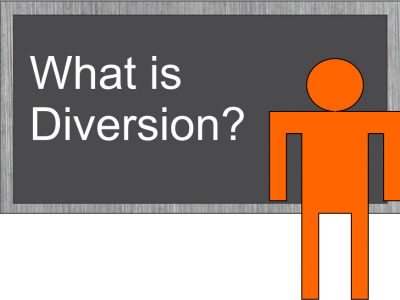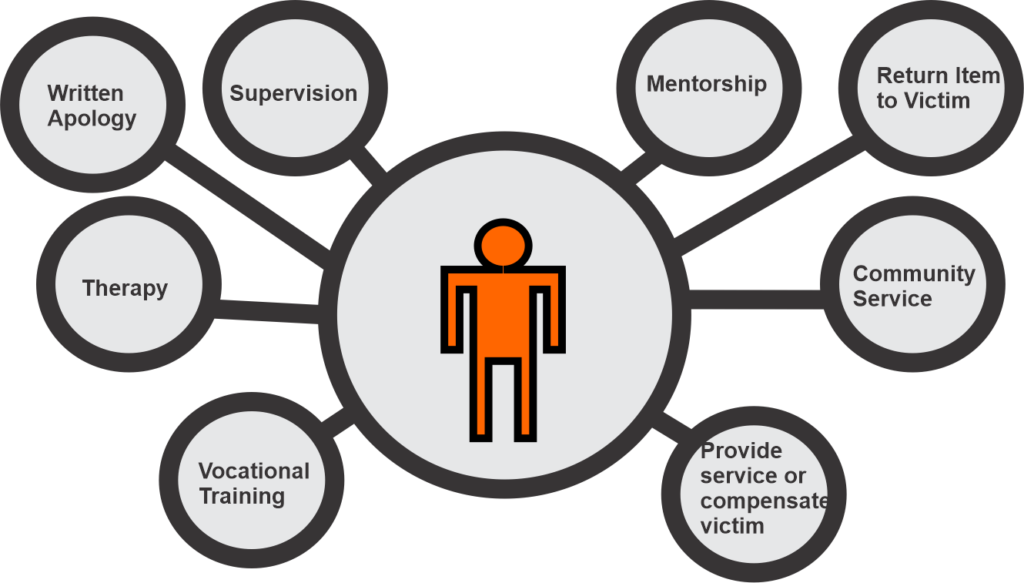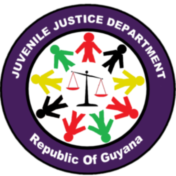Diversion
What is Diversion?

“Diversion” refers to an alternative, child-appropriate process of determining the responsibility and treatment of a child in conflict with the law on the basis of his/her social, cultural, economic, psychological or educational background without resorting to formal court proceedings.
The Aim of Diversion
The central aim of the diversion program is to rehabilitate, educate and reintegrate, however, protecting victims’ rights, ensuring juveniles before the court are represented by an attorney-at-law and afforded a speedy trial are critical features that must be developed over time. Given the urgent need for the Juvenile Justice Department to developed the before mentioned programs, it is suggested that the Justice Justice Department approach diversion by categorizing and structuring the programs based on the availability of resources and on the needs of the Juveniles and the victims. However, an important feature of any diversion program is it must have the capacity to be the evaluated at any outcome related to the behavior or well-being of diverted juveniles and their families.
Diversion measures should be designed to encourage the juvenile to acknowledge and repair the harm caused to the victim and community. It should also encourage the family of the juvenile as well as the community, to become involved DIVERSION in the design and implementation of these measures. They should provide an opportunity for victims to participate in decisions related to the measures selected to receive compensation and promote reconciliation between the juvenile and the victim. In addition to all these, diversion measures should respect the rights and freedoms of juveniles and be proportionate to the seriousness of the offence; and prevent defaming the juvenile and the additional consequences that may flow from being subject to the criminal justice system.
Diversion Programs Matrix
| Diversion can occur at: | Diversion include | Stakeholders (Facilitators) | Diversion Intervention |
| School | Referral for service instead of the filing of a written allegation | CPA MOHSSS GPS JJD NGOs CBOs FBOs | Drug Abuse Treatment Cognitive Behavior Counseling Sexual Abuse Counseling Bullying Peer Pressure Psychosocial theory Family Treatment Restitution Group conferencing |
| Police | Caution/ warning programs Referral for service instead of the filing of a written allegation | CPA MOHSSS GPS JJD NGOs CBOs FBOs CDCs RYGs | Monitoring Victim-Offender Mediation Group conferencing Drug Abuse Treatment Cognitive Behavior Counseling Sexual Abuse Counseling Bullying Peer Pressure Psychosocial theory Family Treatment Restitution |
| Magisterial District Judge/Court-Based Programs | Family/restorative group conferencing Mediation Various types of community accountability program (peer courts and youth aid panels) informal adjustment and consent decree dispositions summary offense alternative adjudication programs, adjudication of dependency in lieu of a delinquency adjudication | CPA MOSP MOP-DSC-DCY&S GPS JJD NGOs CBOs FBOs CDCs RYGs Rights Commissions Ethnic Relations Commission National Park Commission M&CC | Monitoring Victim-Offender Mediation Group conferencing Family Treatment Employment Training Skills Building Community Service Drug Abuse Treatment Cognitive Behavior Counseling Sexual Abuse Counseling Peer Pressure Psychosocial theory Restitution |
Diversion Examples

Our Diversion Programmes
The following is a proposed list of diversion programmes to be used:

Mediation

Anger Management
Mentorship

Community Service

Sports

Trade & Music
Parenting Program

Mental Health Therapy

Counselling
